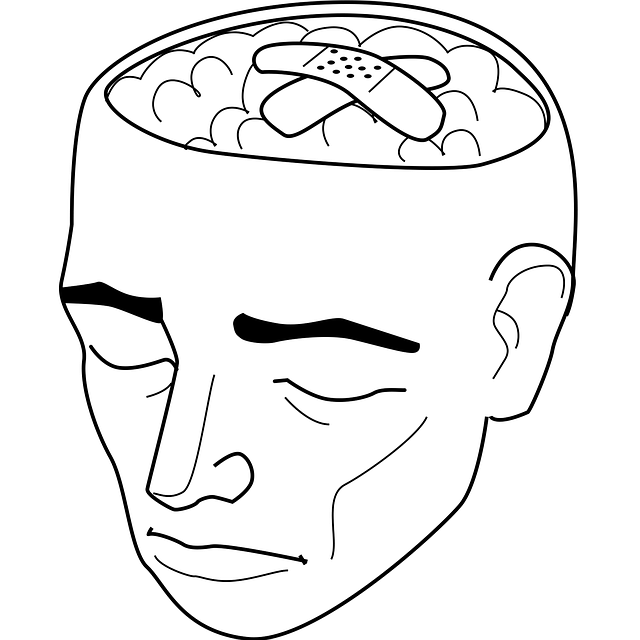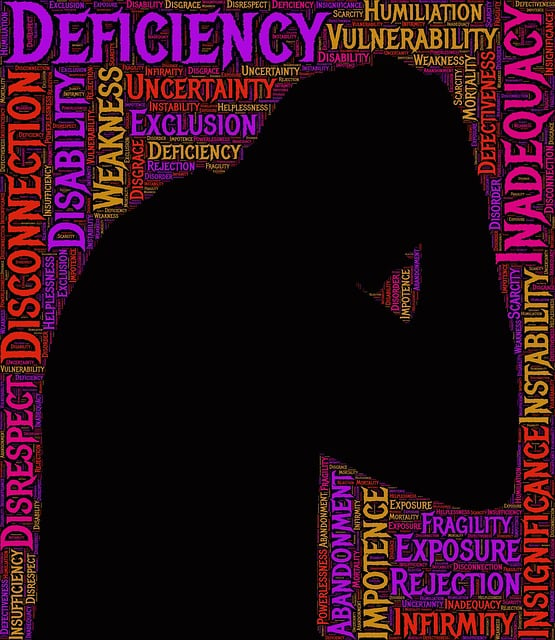Lone Tree Depression Therapy addresses a critical yet often overlooked aspect of mental health care: social skills. Recognizing that poor social interactions can contribute or exacerbate conditions like depression and anxiety, this therapy incorporates Social Skills Training (SST) using techniques such as role-playing, feedback sessions, and crisis management planning. By teaching effective communication, boundary setting, and emotional regulation, SST helps individuals rebuild connections, improve self-esteem, and reduce feelings of isolation. This holistic approach integrates mind over matter principles, emotionally focused therapy, and personalized coaching to foster social engagement and promote emotional healing in a supportive community context.
Social skills training is a powerful tool for individuals navigating mental health conditions. This article delves into the intricate relationship between social skills and mental well-being, highlighting specific challenges faced by those with conditions like depression. We explore the transformative power of targeted programs, focusing on strategies to improve social interactions.
Key components of effective training are dissected, drawing from the success of Lone Tree Depression Therapy’s comprehensive approach. By empowering individuals with essential social skills, we can enhance their quality of life and foster more connected, fulfilling lives.
- Understanding the Link Between Social Skills and Mental Health
- Identifying Challenges in Social Interactions for Individuals with Mental Health Conditions
- Benefits of Social Skills Training: Enhancing Quality of Life
- Key Components of Effective Social Skills Training Programs
- Lone Tree Depression Therapy: A Comprehensive Approach to Building Social Competence
Understanding the Link Between Social Skills and Mental Health

Social skills are integral to our overall well-being and mental health. While many mental health conditions can isolate individuals, fostering strong social connections is a key component in managing symptoms and enhancing quality of life. The link between social skills and mental health is bidirectional; poor social skills can contribute to the onset or exacerbation of mental health issues like depression and anxiety, while improving these skills can act as an effective coping mechanism. For instance, someone struggling with Lone Tree Depression Therapy might find that participating in group therapy sessions, a form of Social Skills Training, helps them rebuild connections and regain confidence in social situations.
Mental health professionals play a crucial role in teaching and reinforcing these skills through various methods, including Role-playing exercises, feedback sessions, and even Risk Management Planning. Additionally, integrating Stress Reduction Methods can empower individuals to navigate social interactions with greater ease and resilience. By addressing the social aspect of mental health, professionals not only complement traditional therapy but also equip their clients with powerful tools for a more fulfilling life.
Identifying Challenges in Social Interactions for Individuals with Mental Health Conditions

Individuals with mental health conditions often face unique challenges when it comes to social interactions. These challenges can range from anxiety and depression to more severe symptoms that may hinder their ability to connect and communicate effectively with others. For instance, someone struggling with Lone Tree Depression Therapy might find social situations overwhelming, leading to avoidance or withdrawal from social activities, which can further isolate them and negatively impact their mental health.
Understanding these challenges is crucial. The Mind Over Matter Principles emphasize the power of cognitive strategies in managing mental health. By learning effective communication techniques and risk management planning, as outlined in Crisis Intervention Guidance, mental health professionals can support individuals in navigating social interactions. This includes teaching coping mechanisms to deal with triggers, setting boundaries, and recognizing signs of distress, thereby fostering a safer and more supportive environment for those dealing with their mental health.
Benefits of Social Skills Training: Enhancing Quality of Life

Social Skills Training (SST) plays a pivotal role in enhancing the quality of life for individuals managing mental health conditions. By providing practical tools and strategies, SST empowers people to navigate social interactions with greater confidence and ease. This, in turn, fosters better relationships, boosts self-esteem, and reduces feelings of isolation—common challenges faced by those dealing with depression or anxiety, as highlighted by Lone Tree Depression Therapy.
Beyond individual benefits, SST contributes significantly to public awareness campaigns focused on mental health development. Educated individuals are better equipped to recognize and support others’ well-being, creating a more supportive social fabric. Furthermore, effective SST practices inform risk management planning for mental health professionals, ensuring they can offer holistic care that addresses both emotional healing processes and the intricate dynamics of social engagement.
Key Components of Effective Social Skills Training Programs

Effective social skills training programs for mental health conditions typically incorporate several key components. One of the foundational elements is emotionally focused therapy, which helps individuals recognize, understand, and manage their emotions in social settings. This involves teaching coping mechanisms and strategies to navigate emotional triggers, a practice that can be significantly beneficial for those managing Lone Tree Depression Therapy. Additionally, these programs emphasize mind over matter principles, encouraging participants to challenge negative thought patterns and replace them with more positive, realistic perspectives.
Another critical aspect is the development of self-care routine practices for better mental health. This includes teaching individuals how to prioritize their well-being through activities like stress management techniques, regular exercise, adequate sleep hygiene, and healthy eating habits. By integrating these self-care routines into their daily lives, participants can enhance their ability to engage socially while also fostering a deeper sense of emotional healing processes.
Lone Tree Depression Therapy: A Comprehensive Approach to Building Social Competence

Lone Tree Depression Therapy offers a comprehensive approach to addressing social competence, an essential aspect often overlooked in mental health treatment. This unique program recognizes that improving social skills can significantly enhance the lives of individuals struggling with depression and other related conditions. By focusing on building social confidence and effective communication strategies, the therapy provides a supportive environment for clients to reconnect and interact with others.
The approach incorporates various techniques from Mental Wellness Coaching Programs Development, tailored to each individual’s needs. This includes teaching practical crisis intervention guidance, helping clients manage social situations, and fostering meaningful connections. Through group sessions and personalized coaching, participants learn valuable communication strategies, enabling them to navigate social interactions with ease and build a supportive network. Lone Tree Depression Therapy aims to empower individuals to overcome loneliness and depression by enhancing their ability to engage and connect with others in their community.
Social skills training, as exemplified by programs like Lone Tree Depression Therapy, plays a pivotal role in managing mental health conditions. By addressing the unique challenges faced by individuals in social interactions, these therapies enhance their quality of life and overall well-being. Incorporating key components such as mindfulness, communication strategies, and group activities ensures comprehensive and effective treatment. Understanding the link between social skills and mental health is crucial, and ongoing support through training programs can lead to transformative outcomes for those navigating mental health conditions.














